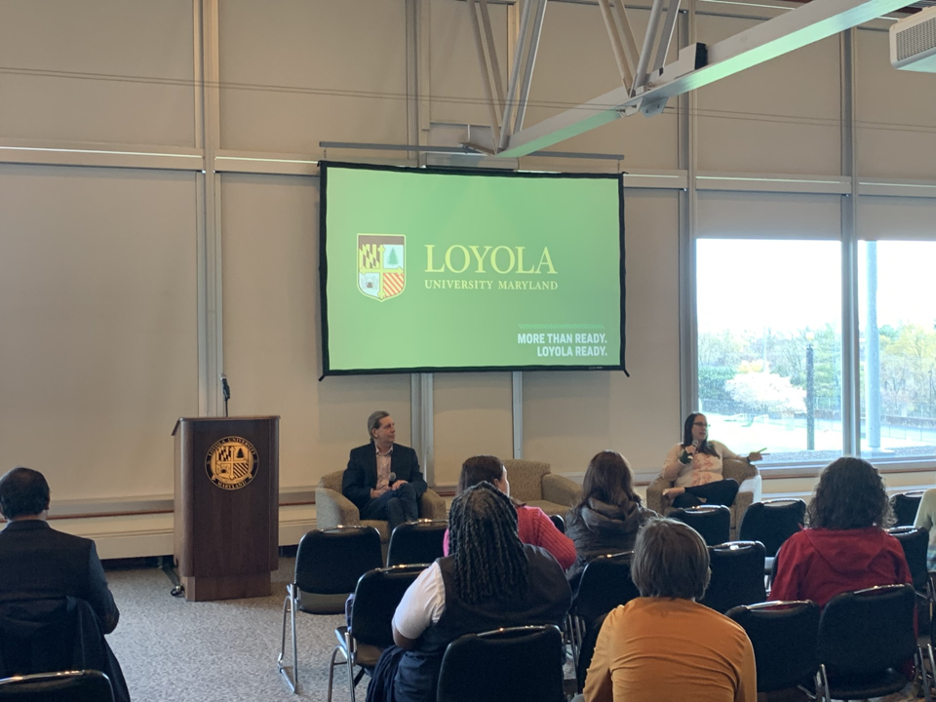Loyola’s Communications Department invited journalists Curt Guyette and Lindsey Smith to speak at this year’s Caulfield Lecture. Both journalists are widely known for their reporting on the Flint Water Crisis while often being credited with bringing the issue to public and international attention.
Each year Loyola hosts the Caulfield Lecture, an annual lecture held by the communications department in which they invite speakers to discuss issues and topics related to journalism. This year, the lecture was focused on the reporting about the Flint water crisis back in the mid-2010s.
Guyette worked as a reporter for the American Civil Liberties Union at the early stages of the Flint crisis. The Michigan state government utilized its controversial Emergency Manager law which enables the governor to “appoint an emergency manager to address a financial emergency within that local government as provided for in this act,” according to Michigan Legislature.
This appointed manager made the decision to switch water systems from Detroit’s safe water supply to the water supplied by Flint River. The local water plant was unprepared to process the water from the Flint River and residents said the water would come out of the faucets dirty and brown. Due to lack of equipment, the government neglected to add anti-corrosion chemicals to the water, causing the water to slow corrode pipes and allow lead to leak into the water supply.
In an attempt to cover up an increasingly obvious water issue, the emergency manager manipulated water tests to deem the amount of lead in the water to be safe. It was later discovered that by facilitating independent water tests, Guyette was able to duplicate the emergency manager’s false results.
Guyette noted that he had to protect himself and the legitimacy of his reporting when confronting corruption.
“You have to be able to prove what you are saying, which is why documentation is so important. The freedom of information act played a pivotal role in helping to bring to light what was going on in Flint, especially in terms of proving they were cheating on the lead tests and showing exactly how they were cheating,” Guyette said.
Smith was working for Michigan Public Radio at the time when her story eventually landed her on national news and eventually pushed to an international scale. To her, one of the most vital aspects of her and Guyette’s work was the cooperation with the public in aiding to publicly break the scandal.
According to Smith, the most vital thing the residents chose to do was take a stand in the face of corruption.
“Credit goes to the people of Flint for refusing to believe the lie that their water was safe,” Smith said.
One of the audience members was Susan Comfort, the mother of a child who was a victim of lead poisoning in a similar but separate case that took place in Washington D.C. She said that she enjoyed the lecture and found it very informative, but that she found the content infuriating, especially because the officials meant to be supporting the people caused them so much harm.
“I think we have to pay attention to things we can’t see. As the panelists noted, Flint Michigan became an international story not only when they could see the pollution in the water, but when they could see the lead test results from their children’s blood, so we have to address problems we can’t see,” Comfort said.
The key point of the panel was not about Flint in particular but instead the importance of investigative reporting in holding the government accountable. Guyette said that one of the most important roles a journalist can take on is that of a watchdog over corruption.
“I think it’s always going to be effective,” Guyette said.
“One of the reasons the ACLU hired me as an investigative reporter is because mainstream journalism, when it’s under financial duress, one of the things they cut is investigative reporting because it’s the most expensive kind of reporting there is. So, if you’re looking at your bottom line, that’s one of the areas that you go to.”










































































































